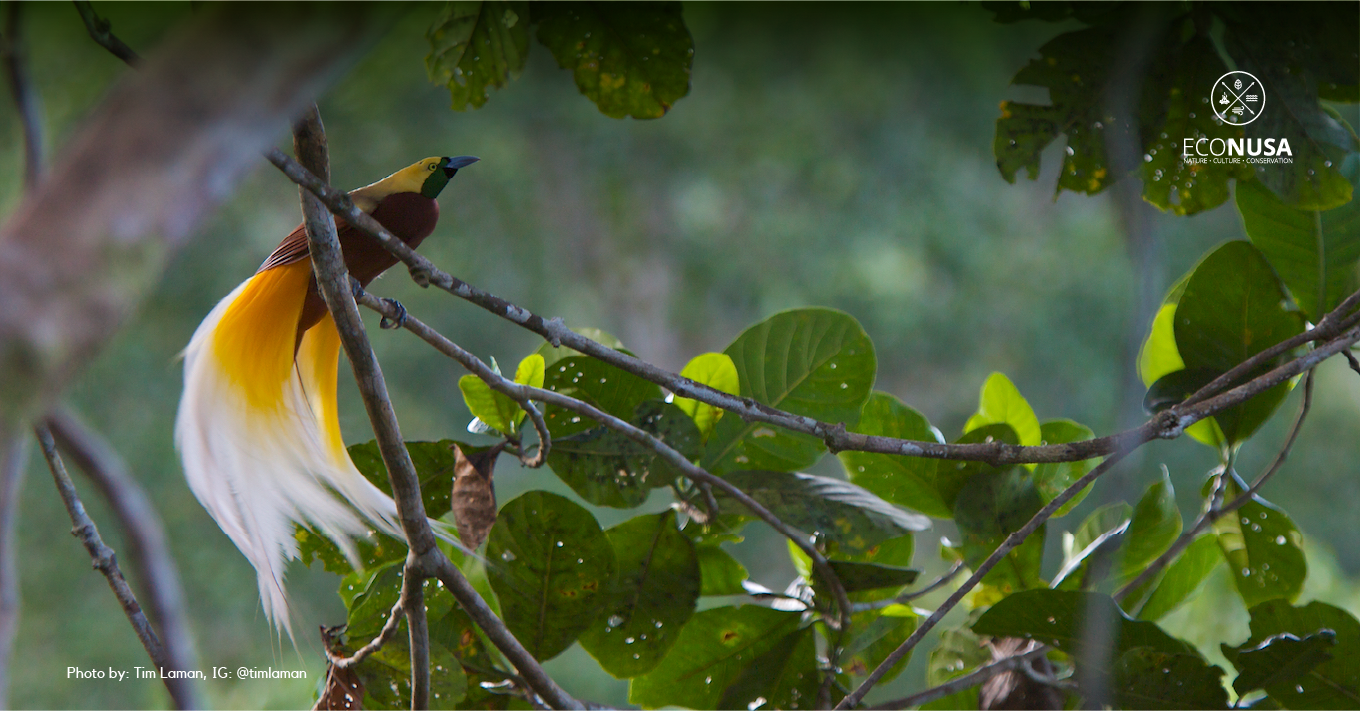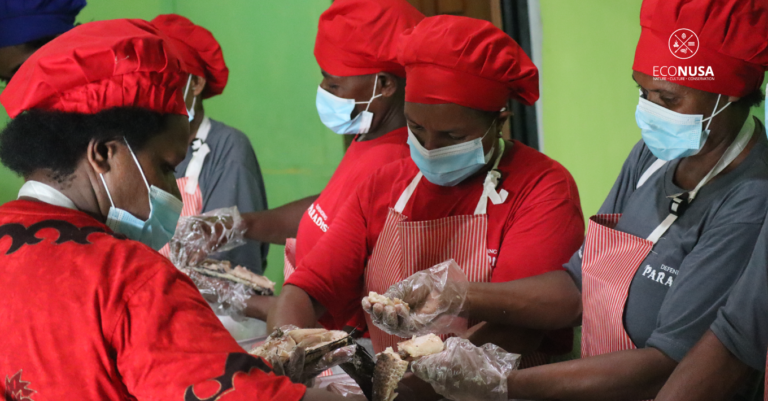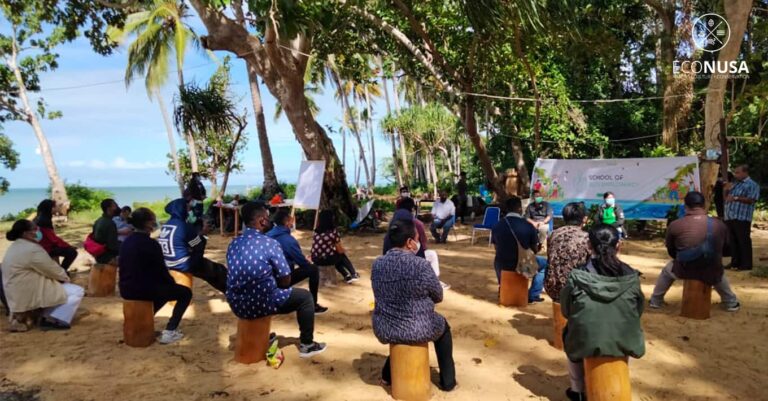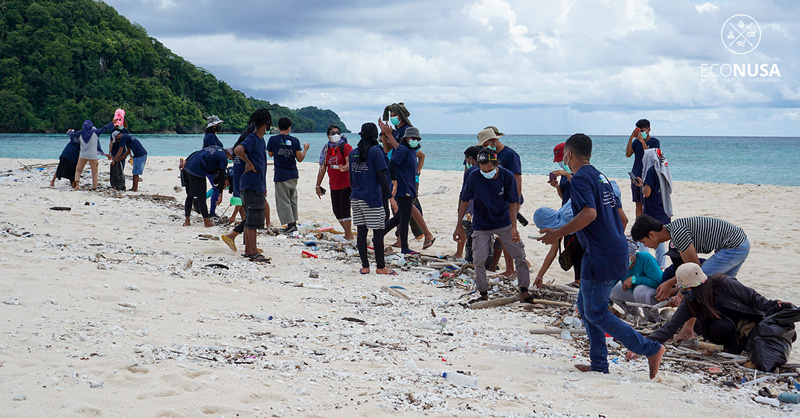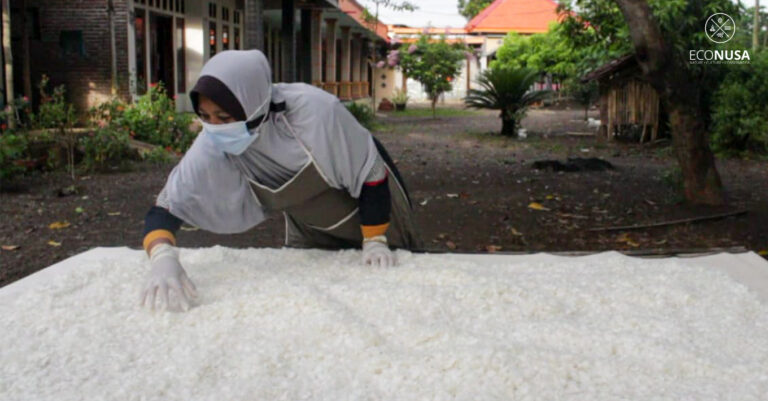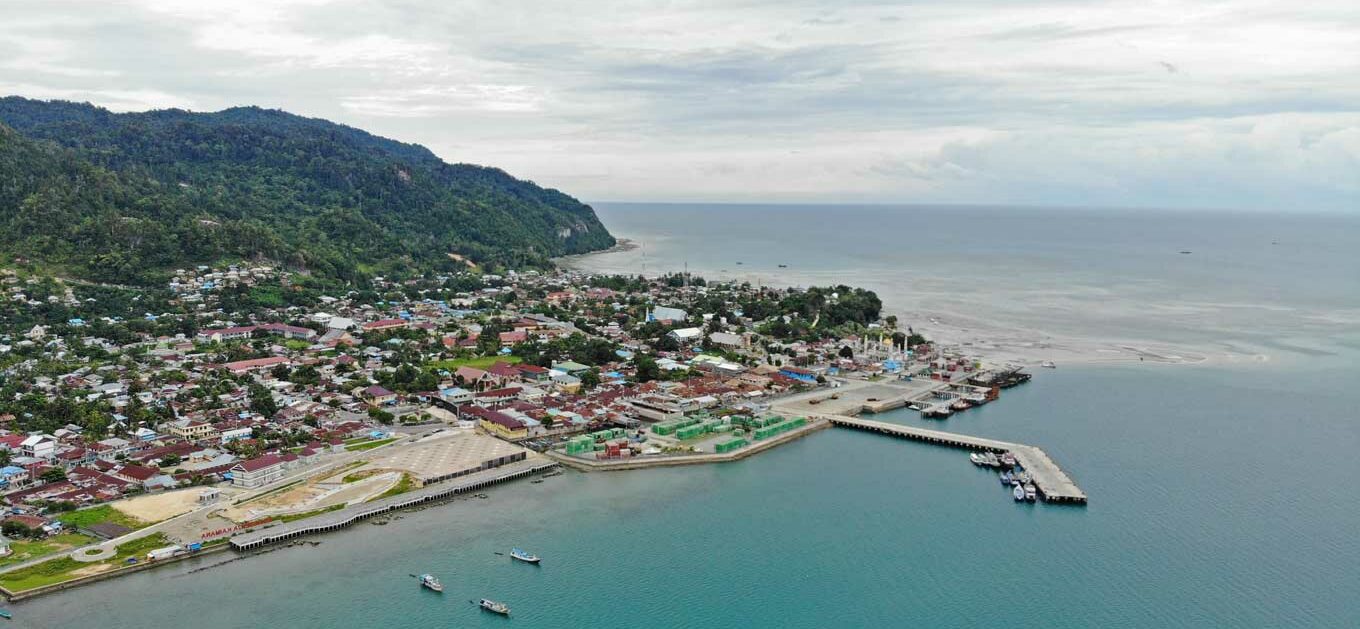
We are focusing on the issues of encouraging sustainable management on the oceans, including better management of fisheries. To build leadership from the community is one of the primary keys, while single-use plastic waste is an essential angle in creating public awareness. EcoNusa will continue to develop leadership at the local and national levels, especially for the younger generation.
Indonesia, as an archipelago of more than 17.000 islands, is not immune from the global climate crisis. As a result of this crisis, ocean temperatures have increased by about 0.13°C per decade over the last 100 years. The warmer ocean causes changes in marine ecosystems and affects the life in it (IUCN, 2016). In Indonesia, the changing climate has resulted in declining health of important coastal ecosystems and changing fishing seasons. This impacts the socio-economic conditions of coastal communities in Indonesia. Some of the adverse impacts of climate change include mass coral bleaching, migration of fish habitats to cooler places, and changes in fishing seasons and a decrease in fishery catches.
Indonesia’s interventions to addressing climate impacts on marine and fisheries are crucial. As the largest archipelagic country in the world, more than 60% of Indonesia’s territory is water. This means that intra-national seas and oceans that make Indonesia have an important role in shaping the global climate through its oceans (UN Report, 2017). To that end, the Indonesian government has established sustainable marine and fisheries development through five pillars, namely: (i) preventing and controlling pollution in marine and coastal areas; (ii) monitoring the health of marine ecosystems; (iii) restoring damaged ecosystems and environments around coastal and marine areas, including mangroves, coral reefs, and seagrass beds; and (iv) strengthening marine security (Bappenas, 2021). The five pillars are part of the 2020-2024 National Medium-Term Development Plan (RPJMN). In addition, the RPJMN states that the marine and fisheries sector supports the achievement of the national development agenda, particularly strengthening economic resilience for quality and equitable growth agenda, environmental improvement and increased disaster resilience agenda, strengthening political stability, law and security affairs agenda, and transforming public services agenda. (Bappenas, 2021).
EcoNusa envisions fair and sustainable marine and fisheries management as the main agenda of the Indonesian government. To achieve this vision, EcoNusa’s Ocean Program carries out the following main strategies: (1) building community resilience; (2) advocating for evidence-based policies; (3) building strong and strategic media communication and engagement; and (4) mobilizing the youth.
EcoNusa has collaborated with communities, national and regional organizations in North Maluku (Ternate, Halmahera Selatan), Maluku (Banda, Aru Islands, Ambon), West Papua (Kaimana, Sorong, Manokwari), Papua (Jayapura, Merauke), East Nusa Tenggara, West Nusa Tenggara, South Sulawesi, Central Sulawesi, Gorontalo, and North Sulawesi. The basis of these collaborations is the awareness that the contribution of eastern Indonesia to the fisheries sector, which is around 7.95% of the Gross Domestic Product (GDP) in the last six years (BPS, 2021a), has not yet had an impact on the local economy. This is illustrated in the government’s report on the poorest provinces in Indonesia which states that out of the 5 poorest provinces in the nation, 4 are in Eastern Indonesia, namely Papua, West Papua, East Nusa Tenggara, and Maluku, even the areas’ coastal and marine resources are rich with potential. Therefore, EcoNusa seeks to create welfare and achieve sustainable marine and fisheries management through policy interventions, public campaigns, youth movements, and supporting alternative and sustainable economies by promoting local businesses in collaboration with local cooperatives.
EcoNusa plays a strategic role in conducting policy advocacy and connecting civil society groups to unite as a coalition; strengthening the position of local communities to voice concerns related to marine and fisheries at the national and regional levels; and developing evidence-based policy recommendations for the government supported by credible universities and scientists at local and national levels.
EcoNusa initiates and leads two coalitions, the NGO Coalition for Sustainable Fisheries and Marine Affairs (KORAL) and Jaring Nusa, to address ocean issues. At the national level, KORAL helps strengthen policy recommendations by gathering evidence from national and regional networks, universities and research institutes. KORAL is a coalition consisting of 9 key organizations focusing on realizing sustainable fisheries and marine governance. Founded in 2020, KORAL has 9 active members, namely Wahana Lingkungan Hidup Indonesia (WALHI), Koalisi Rakyat untuk Keadilan Perikanan (KIARA), Indonesia Ocean Justice Initiative (IOJI), Yayasan EcoNusa, Pandu Laut Nusantara, Greenpeace Indonesia, Destructive Fishing Watch (DFW), Yayasan Terumbu Karang Indonesia (TERANGI) dan Indonesian Centre for Environmental Law (ICEL). At the local level, Jaring Nusa facilitates learning and knowledge management processes among local NGOs and organizations, and also promotes best practices in small-scale fisheries management. Jaring Nusa is a coalition of 17 regional organizations committed to collaboratively protecting the ocean, coasts, and small islands in eastern Indonesia. Its focus issues include climate change, sustainable fisheries management policies, conservation-based local wisdom, and strengthening the young generations to love the ocean, coasts and small islands, as well as recognition of equitable sea management for fishers and coastal and small island communities.
In addition, EcoNusa has a program called Penjaga Laut, which is a forum for youth movements to actively, collaboratively, and positively protect the oceans throughout Indonesia through activities that focus on the marine and fisheries sector. Throughout 2021, EcoNusa continued its efforts to mobilize youth groups through various programs. The School of Marine EcoDiplomacy program provides intensive training for youth on leadership in the marine sector accompanied by various experts. The Sail to Campus program, which has engaged 6.000 students so far, is a program for students to take action in marine protection. EcoNusa also engages the media and journalists in channeling the voices of the public, NGOs, CSOs/CBOs and youth about sustainable oceans. Through the Fellowsea program, EcoNusa collaborates with 120 journalists from 29 provinces, 15 top media outlets, as well as 25 influencers in 15 major cities and regions to raise public awareness about marine issues. As of 2021, EcoNusa has mobilized a total of 70,000 people, 30 community groups, 160 communities, and 20 key academics in the ocean movement.
EcoNusa is also equipped with a mobile marine “office” called the EcoXplorer, which serves as a vessel for education and public awareness, and a research and training center. In addition, the EcoXplorer will assist the EcoNusa team in monitoring and detecting threats at sea, such as destructive fishing activities and the impact of the climate crisis. The findings from these activities will contribute to strengthening policy recommendations to policymakers. The EcoXplorer will operate in Maluku and Bird’s Head Region in West Papua. To support its sustainability, the EcoExplorer vessel will be used for ecotourism and transporting and trading local commodities.
EcoNusa believes that ocean-based activities will lead to greater achievements in sustainable and just marine and fisheries management. These achievements can be channeled back into marine conservation, fostering sustainable livelihoods for coastal communities, and conserving marine biodiversity by restoring marine and coastal ecosystems. The Indonesian government needs to optimize marine and fishery resources, design and integrate policies, and take action towards sustainable and just marine and fishery management.


